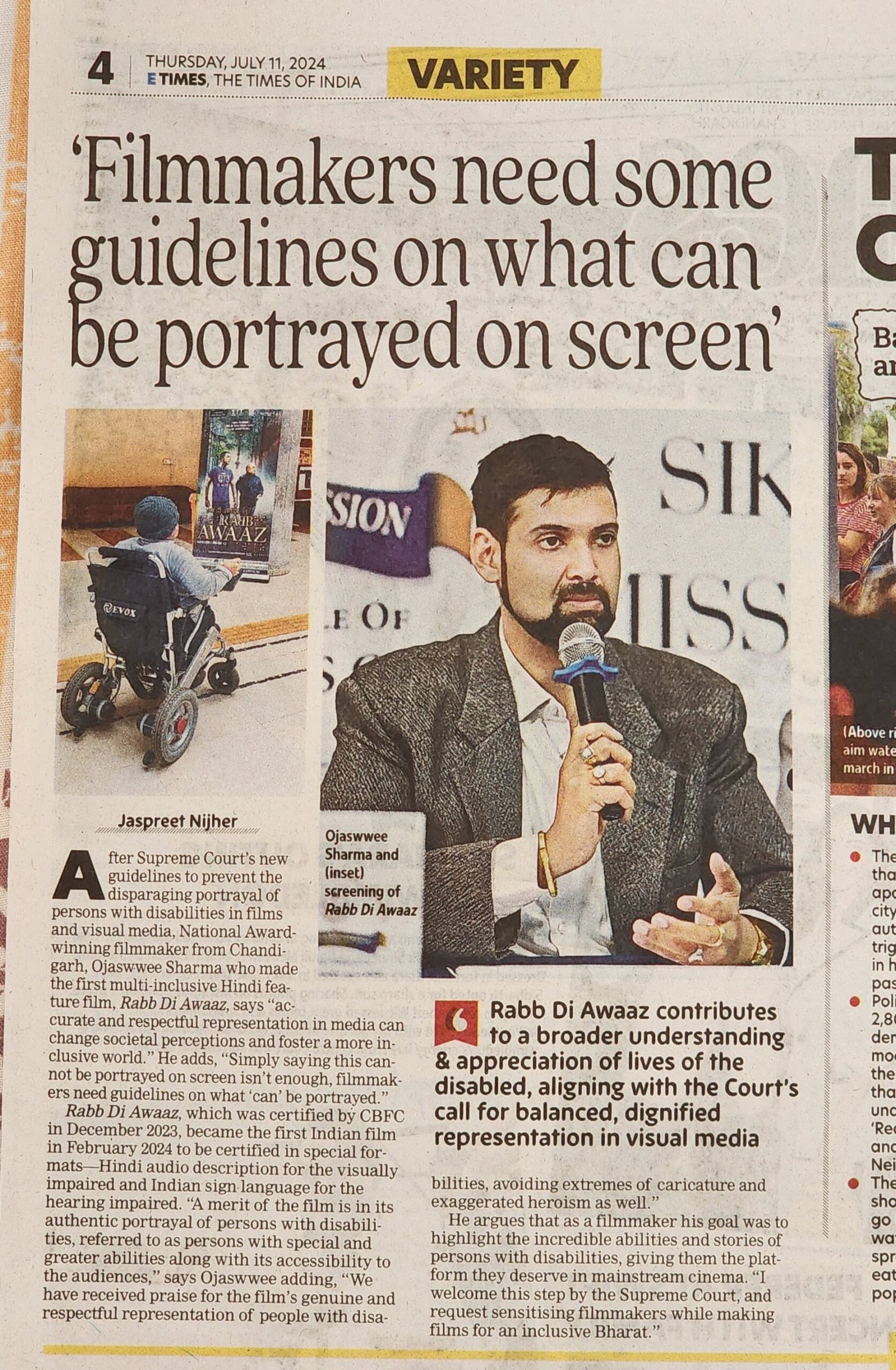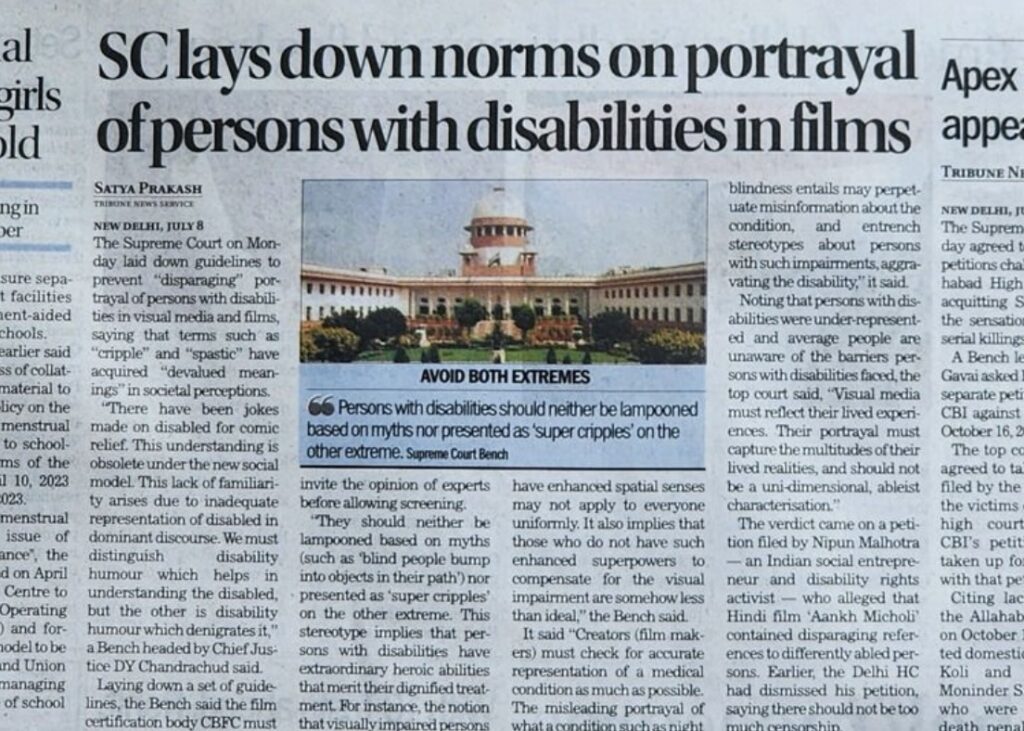
Supreme Court Lays Down Norms on Portrayal of Persons with Disability in Films
The Supreme Court of India has issued new guidelines to prevent the disparaging portrayal of persons with disabilities in visual media and films. The guidelines emphasize that terms such as “cripple” and “spastic” have acquired devalued meanings in societal perceptions, and filmmakers must ensure accurate and respectful representations.
A Bench headed by Chief Justice DY Chandrachud stated that persons with disabilities should neither be lampooned based on myths nor presented as “super cripples.” The court highlighted the importance of avoiding stereotypes and ensuring that portrayals reflect the lived experiences of persons with disabilities. The decision came in response to a petition by social entrepreneur and disability rights activist Nipun Malhotra, who argued against disparaging references in the Hindi film “Aankh Micholi.”
Report on the Film “Rabb Di Awaaz” and Supreme Court Judgment
In line with the Supreme Court’s guidelines, the film “Rabb Di Awaaz,” released on 28th December 2023, stands as a groundbreaking initiative. Directed by National Award-winning filmmaker Ojaswwee Sharma, it is India’s first multi-inclusive Hindi feature film. The film received its CBFC Certification on 26th December 2023 and was later certified in special formats—Hindi Audio Description for the visually impaired and Indian Sign Language for the hearing impaired—on 7th February 2024.
Statement from Director Ojaswwee Sharma
“As a filmmaker, my goal with ‘Rabb Di Awaaz’ was to highlight the incredible abilities and stories of persons with disabilities, giving them the platform they deserve in mainstream cinema. This film is a testament to their strength, resilience, and talent. I believe that accurate and respectful representation in media can change societal perceptions and foster a more inclusive world. I am deeply honored by the positive reception the film has received and hope it inspires more inclusive storytelling in the industry. I welcome this step by the Supreme Court, but I would like to also thank CBFC for watching and certifying ‘Rabb Di Awaaz’ with a ‘U’ Certification.”
The film has been seen by lacs in the six months since its release and has been screened at almost 50 venues across North India. We aim to reach even more audiences in the coming year.
The making and releasing of Rabb Di Awaaz is a step towards an Inclusive Cinema and Inclusive Bharat and the screening of the film at screening venues supported by educational institutions is a step towards Inclusive Education.
Context of Supreme Court’s Guidelines to “Rabb Di Awaaz”
The Supreme Court’s directives underscore the importance of films like “Rabb Di Awaaz,” which adhere to these principles by authentically showcasing the abilities and experiences of persons with disabilities. This film contributes to a broader understanding and appreciation of their lives, aligning with the court’s call for balanced and dignified representation in visual media.
